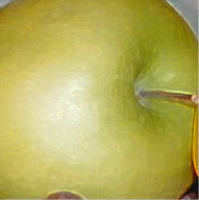|
Vitamins, Minerals, Nutrients and Others
Minerals
Calcium is vital for healthy bones and teeth, for muscle and nerve function and for blood clotting. It is found in
vegetables, dairy products (especially milk and cheese), canned fish and fortified flour.
Copper and Manganese is needed for healthy bones, aids the absorption of iron and is good for the immune system. It is
a co-factor with enzymes that form natural colouring of pigments of the skin and hair. It is found in green vegetables,
fish and liver.
Iodine is needed for the thyroid gland and controls the rate of metabolism and circulation. It is found in mushrooms,
seafood, kelp and iodised salt.
Iron increases resistance to infection and helps the body's healing process. It is used to make haemoglobin, which
carries oxygen from the lungs to body cells and helps aid skin and hair pigmentation. It is found in red meat,
liver, and the yolk of an egg, dried apricots, raisins, molasses and whole grains.
Magnesium helps the body release energy and absorbs nutrients. It works with calcium to help maintain healthy bones
and regulates body temperature, nerves and muscle function. It is found in green vegetables, milk, nuts, beans,
peas and wheat germ.
|
|

|
Manganese is found in the bones, liver and kidneys and is associated with healthy joint and enzyme activity. It aids
the nervous system, muscle flex and contraction. It is found in green vegetables, nuts, whole grain cereals, the yolk
of an egg, tea and coffee.
Molybdenum assists in the transport of iron and energy and controls the uric acid levels. It is a component of several
enzymes and aids smooth muscle action. It is found in vegetables, especially those grown in alkaline soils, liver
and wheat germ.
Phosphorus aids in the release of energy and in regulating protein activity. It is present in our skeleton, teeth and
cell membranes and works with calcium and Vitamin D. It aids muscle reflex and contraction. It is found in meat,
cereals, milk, cheese and eggs.
Potassium works with sodium to help regulate body fluids, as well as nerves, heartbeat and blood pressure. It aids
muscle tone and function and cell membrane transfer and activity. It is found in vegetables, fresh fruit, meat and
fish.
Selenium is an antioxidant and is important for growth, fertility, thyroid action and healthy skin and hair. It is
believed to help protect against heart disease, some cancers and premature aging. It works synergistically with
Vitamin E and aids healthy eyes, hair and skin and is a anti inflammatory. It is found in whole grains, cereals,
beans, peas, meat, seafood and nuts.
Zinc is an antioxidant which is essential for growth, development and fertility. It also helps to maintain healthy
skin and the body's immune system. It aids the healing of wounds and is involved in skin and hair protein. It is
found in mushrooms, seafood and iodised salt.
Nutrients
Choline is used in liver, kidney and gall bladder functions, is an antibody production, an immunity build up
(immune system) and aids the metabolism of fats and nerve tissue. It is found in soya beans, peanuts, fish,
beef liver and brewers yeast.
|

|
|
Inositol is found in high concentration in the human stomach, brain, kidneys, spleen and liver. It helps maintain
healthy hair, is involved in the control of blood cholesterol levels and prevents accumulation of fats in the
liver. It is found in brown rice, molasses, beef heart, brewers yeast and bulgar wheat.
Paba is used by the intestinal bacteria to produce their folic acid and it aids the skin's condition as an anti-sun
screener. It is found in eggs, liver, wheat germ, molasses and brewers yeast.
Bioflavonoid (including Rutin and Hesperidin) aids the proper absorption of Vitamin C and is an antibody production
for the immune system. It is involved in the maintenance of capillary strength and regulating permeability in
connective tissue. It is found in buckwheat, citrus fruit, stoned fruit and rosehips.
|
Others
Antioxidants are chemical compounds which include certain vitamins, minerals and phytochemicals
which are believed to help protect from the damaging effects of cancer-inducing free radicals.
Beta-Carotene is a potent antioxidant that can convert to Vitamin A.
Ellagic Acid is believed to block the action of cancer-inducing cells.
Essential Fatty Acids are needed for healthy function of the body’s cells. These include omega 3 and omega 6
and they may also help protect against heart disease and certain cancers.
Fibre comes in two types, insoluble and soluble. Insoluble fibre helps avoid constipation, so may help
prevent bowel cancer. Soluble fibre (such as pectin) can help reduce LDL (Low Density Lipoprotein) cholesterol
levels and helps control blood and sugar levels. LDL is considered as ‘bad’ cholesterol while HDL (High Density
Lipoprotein) cholesterol is considered ‘good.’
Flavonoids help boost the immune system, fight inflammation and allergies and are believed to have other
health-enhancing properties. They are found in the pigments that give fruit and vegetables its colour.
Folic Acid is vital for women planning to become pregnant and it helps reduce the risk of birth defects.
Free radicals are harmful molecules, produced continually by our bodies, which destroy cells in a
process called oxidation. Antioxidants, like vitamins A, C and E, neutralise free radicals, helping prevent
damage to cells.
Lutein is a plant pigment which is believed to help protect against cancer.
Health home Go
|
|